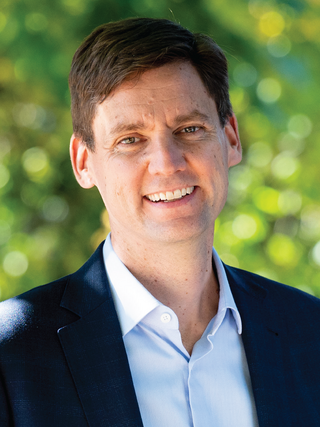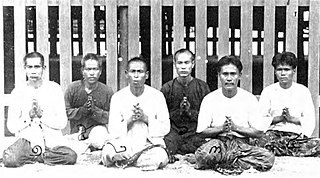
Money laundering is the process of illegally concealing the origin of money obtained from illicit activities such as drug trafficking, underground sex work, terrorism, corruption, embezzlement, and gambling, and converting the funds into a seemingly legitimate source, usually through a front organization.

Kleptocracy, also referred to as thievocracy, is a government whose corrupt leaders (kleptocrats) use political power to expropriate the wealth of the people and land they govern, typically by embezzling or misappropriating government funds at the expense of the wider population. One feature of political-based socioeconomic thievery is that there is often no public announcement explaining or apologizing for misappropriations, nor any legal charges or punishment levied against the offenders.

Anti-Money Laundering (AML) refers to a set of policies and practices to ensure that financial institutions and other regulated entities prevent, detect, and report financial crime and especially money laundering activities. Anti-Money Laundering is often paired with the action against terrorism financing, or Combating the Financing of Terrorism, using the acronym AML-CFT. In addition arrangements intended to ensure that banks and other relevant firms duly report suspicious transactions, the AML policy framework includes financial intelligence units and relevant law enforcement operations.

Asset forfeiture or asset seizure is a form of confiscation of assets by the authorities. In the United States, it is a type of criminal-justice financial obligation. It typically applies to the alleged proceeds or instruments of crime. This applies, but is not limited, to terrorist activities, drug-related crimes, and other criminal and even civil offenses. Some jurisdictions specifically use the term "confiscation" instead of forfeiture. The alleged purpose of asset forfeiture is to disrupt criminal activity by confiscating assets that potentially could have been beneficial to the individual or organization. Asset forfeiture was found to generally increase with the percentage of the assets retained depending on electoral incentives.

Richard Thomas Coleman is a Canadian politician and former police officer who served as a Member of the Legislative Assembly (MLA) in British Columbia, representing Fort Langley-Aldergrove from 1996 to 2017, and Langley East from 2017 to 2020. As part of the British Columbia Liberal Party caucus, he served in several cabinet posts under Premiers Gordon Campbell and Christy Clark, including as the 13th Deputy Premier of British Columbia from 2012 to 2017. He was also the party's interim leader and Leader of Opposition in British Columbia between 2017 and 2018.
The Financial Transactions and Reports Analysis Centre of Canada is the national financial intelligence agency of Canada. FINTRAC was established in 2000 under the Proceeds of Crime Act to facilitate detection and investigation of money laundering, FINTRAC's mandate was expanded in December 2001 following amendments to the Proceeds of Crime Act to also disclose financial intelligence to other Canadian intelligence and law enforcement agencies with respect to suspected terrorist financing. FINTRAC's mandate was further expanded in 2006 under Bill C-25 to enhance the client identification, record-keeping and reporting measures, established a registration regime for money services businesses and foreign exchange dealers, and created new offences for not registering.

The British Columbia Lottery Corporation is a Canadian Crown corporation that manages all legal gambling products in British Columbia including lottery tickets, casinos and online gambling. It is based in Kamloops, with a secondary office in Vancouver. It consists of three business units: Lottery, Casino and eGaming. Its annual revenues exceed CDN $1.6 billion. It has 890 direct employees. Its service providers, who run casinos on its behalf under contract, have an additional 8,300 employees.

Financial crime is crime committed against property, involving the unlawful conversion of the ownership of property to one's own personal use and benefit. Financial crimes may involve fraud ; theft; scams or confidence tricks; tax evasion; bribery; sedition; embezzlement; identity theft; money laundering; and forgery and counterfeiting, including the production of counterfeit money and consumer goods.

Corruption in Canada is the use of political power for private gain by Canadian government officials.

David Robert Patrick Eby is a Canadian politician and lawyer who has been serving as the 37th and current premier of British Columbia since November 18, 2022.

A triad is a Chinese transnational organized crime syndicate based in Greater China with outposts in various countries having significant overseas Chinese populations.

A Bitcoin ATM is a kiosk that allows a person to purchase Bitcoin and other cryptocurrencies by using cash or debit card. Some Bitcoin ATMs offer bidirectional functionality, enabling both the purchase of Bitcoin and the sale of Bitcoin for cash. In some cases, Bitcoin ATM providers require users to have an existing account to transact on the machine.
A cryptocurrency tumbler or cryptocurrency mixing service is a service that mixes potentially identifiable or "tainted" cryptocurrency funds with others, so as to obscure the trail back to the fund's original source. This is usually done by pooling together source funds from multiple inputs for a large and random period of time, and then spitting them back out to destination addresses. As all the funds are lumped together and then distributed at random times, it is very difficult to trace exact coins. Tumblers have arisen to improve the anonymity of cryptocurrencies, usually bitcoin, since the digital currencies provide a public ledger of all transactions. Due to its goal of anonymity, tumblers have been used to money launder cryptocurrency.

The Canadian property bubble refers to a significant rise in Canadian real estate prices from 2002 to present. The Dallas Federal Reserve rated Canadian real estate as "exuberant" beginning in 2003. From 2003 to 2018, Canada saw an increase in home and property prices of up to 337% in some cities. In 2016, the OECD warned that Canada's financial stability was at risk due to elevated housing prices, investment and household debt. By 2018, home-owning costs were above 1990 levels when Canada saw its last housing bubble burst. Bloomberg Economics ranked Canada as the second largest housing bubble across the OECD in 2019 and 2021. Toronto scored the highest in the world in Swiss bank UBS' real estate bubble index in 2022, with Vancouver also scoring among the 10 riskiest cities in the world.
The Cullen Commission is a money laundering inquiry established by the Canadian province of British Columbia. Currently all evidence has been presented, and the Commission was given an extension until May 20, 2022, to deliver its findings. The findings were delivered to the BC attorney general on June 2, 2022, and require a review from the Attorney general of British Columbia before they can be released. The findings were expected to be released on June 15, 2022.

Better Dwelling is a Vancouver-based daily news publisher and financial media company. It operates Canada's largest independent housing news outlet.
Project Sidewinder is a declassified study conducted by a Canadian Security Intelligence Service (CSIS) and Royal Canadian Mounted Police (RCMP) joint task force. It controversially argues Chinese intelligence and Triads have been working together on intelligence operations in Canada. The report was headed by former Asia Pacific Chief, Michel Juneau Katsuya. He later collaborated with various US counterparts who were investigating the links between Organized Crime, the Chinese Communist Party and Chinese business tycoons. Dubbed the Unholy Trinity by the U.S. Department of Justice in a later named collaboration between 5 US agencies including the FBI, DEA, DIA, NSIA and CIA. Dubbed Dragon Lord, a summary of the report was uncovered by former military intelligence analyst Scott McGregor and Documentary Journalist Ina Mitchell and published in their book The Mosaic Effect in October 2023.
Dirty Money is a formerly confidential report commissioned by the Government of British Columbia into the state of money laundering in the province. It was released to the public in two parts in 2018 and 2019, respectively.
Peter German is a Canadian legal academic and anti-money laundering expert. He is best known as the author of the Dirty Money reports, as well as serving as the former deputy commissioner for western and northern Canada of the Royal Canadian Mounted Police.
Hawala and crime describes notable examples of hawala used in money laundering.











